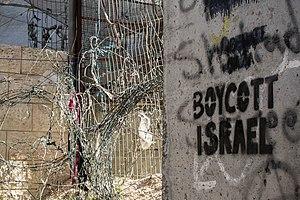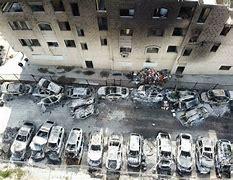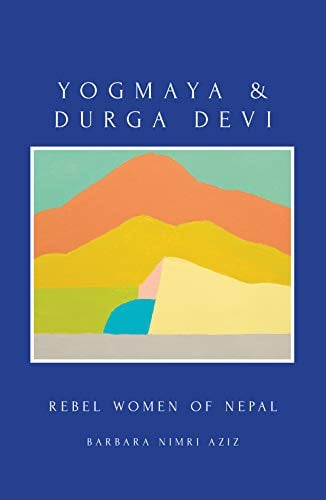Where Should Palestinians Search for Justice?

All Global Research articles can be read in 51 languages by activating the Translate Website button below the author’s name.
To receive Global Research’s Daily Newsletter (selected articles), click here.
Follow us on Instagram and Twitter and subscribe to our Telegram Channel. Feel free to repost and share widely Global Research articles.
***
A London hospital removes Palestinian children’s art because it upset some patients. Meanwhile, seemingly unassociated, far away in The West Bank and Gaza, Palestinians men, women and children are being ‘removed’ from their homes through a daily sustained process of genocidal cleansing.
So abundant are the grievances of Palestinians, so relentless the attacks on their bodies, their voices, their land and the very idea of Palestine, that any record or explanation of these erasures becomes buried behind the latest onslaught.
Crippling economic sanctions on Gazans have been underway for years. Life there is simple endurance.
Military occupation of the entire West Bank never eases; Israeli forces enter at will to raid, threaten, arrest, maraud, plunder, wound and kill. The killing of 64 Palestinians by Israeli soldiers in the first two months of this year were so ‘routine’ that outside agencies–neither politicians, nor human rights officials, nor news outlets– barely noted them.
It matters not if those targeted are children, stone throwers, armed fighters or bystanders. The February 6th murder of five is one episode among many. Only when 11 Palestinians died on February 22nd were the events reported in some international media outlets. Or perhaps it was the deaths of two Israelis that day which warranted outside attention? Daily incursions onto Palestinian property by settlers, the destruction of their crops, the theft of their water is as common and inexorable as assaults against individual Palestinians. The same for Israel’s demolition of Arab homes—the extrajudicial response to suspicions that a member of that household had assaulted an Israeli Jew.
Image: Soldering West Bank town of Huwara, torched by Israeli settlers
Uninhibited,—indeed they’re often protected by Israeli soldiers – Jewish settlers residing across the West Bank who now number more than five hundred thousand, attack Palestinians residing in nearby villages. With their numbers purposefully set to increase. Without a viable leadership, Palestinians have only one way to answer the encroachments, losses and killings—they protest. Whether with stones, shouts, or weapons, their actions seem as irrepressible as the expanding settlements. The death of any Israeli leads to revenge terror either by its military or by armed settlers. Until an inevitable atrocity results. Last month’s cycle of violence peaked with an hours-long massive attack by settlers against an entire Arab community, Huwara, near Nablus. That assault was nothing less than a ‘cleansing’ operation. Images of the smoldering Palestinian town evoke The Tulsa Race Massacre in Oklahoma 102 years ago.
The shocking footage of the blazing town provided barely a momentary distraction from the battles in Ukraine. Then, Palestinian losses are eclipsed with this week’s massive protests in Tel Aviv by Israelis fearing their democracy will be undermined if announced judicial reforms are carried out.
Meanwhile assaults on Palestinian identity at the intellectual and cultural level proceed unabated. To note a few recent examples, we had the rejection of human rights scholar Kenneth Roth’s appointment at Harvard’s Carr Center for his comments regarding Israel. The decision was only rescinded after a vigorous campaign supporting Roth. Not so fortunate was law professor James Cavallaro; his appointment to serve on the Biden administration’s human rights commission was cancelled last month. This in the same month that Sarah Margon, Washington Director of Human Rights Watch, who’d voiced support for boycott of Airbnb in the Occupied Territories, resigned after repeated delays to her state department appointment. Filling out the month comes an unsuccessful challenge to the anti-BDS movement in the U.S. The Supreme Court’s refusal to hear an Arkansas appeal means that this egregious anti-boycott law stands. Arkansas, along with 34 other states, can legally withhold government funds or appointments to any American company or institution that supports boycotting Israeli goods.
These are among the grossest denials of Palestinian rights, only a few of which come to the attention of American citizens. So what can we expect of a vibrant Gaza Children’s art exhibit in a London hospital? Last month, The Chelsea and Westminster Hospital announced it would remove a display by Palestinian children in the hospital lobby. The UK lawyers for Israel group, representing offended Jewish patients, were delighted by the hospital’s decision.
*
Note to readers: Please click the share buttons above. Follow us on Instagram and Twitter and subscribe to our Telegram Channel. Feel free to repost and share widely Global Research articles.
Barbara Nimri Aziz whose anthropological research has focused on the peoples of the Himalayas is the author of the newly published “Yogmaya and Durga Devi: Rebel Women of Nepal”, available on Amazon.
She is a regular contributor to Global Research.
All images in this article are from the author
“Yogmaya and Durga Devi: Rebel Women of Nepal”
By Barbara Nimri Aziz
A century ago Yogmaya and Durga Devi, two women champions of justice, emerged from a remote corner of rural Nepal to offer solutions to their nation’s social and political ills. Then they were forgotten.
Years after their demise, in 1980 veteran anthropologist Barbara Nimri Aziz first uncovered their suppressed histories in her comprehensive and accessible biographies. Revelations from her decade of research led to the resurrection of these women and their entry into contemporary Nepali consciousness.
This book captures the daring political campaigns of these rebel women; at the same time it asks us to acknowledge their impact on contemporary feminist thinking. Like many revolutionaries who were vilified in their lifetimes, we learn about the true nature of these leaders’ intelligence, sacrifices, and vision during an era of social and economic oppression in this part of Asia.
After Nepal moved from absolute monarchy to a fledgling democracy and history re-evaluated these pioneers, Dr. Aziz explores their legacies in this book.
Psychologically provocative and astonishingly moving, “Yogmaya and Durga Devi” is a seminal contribution to women’s history.



